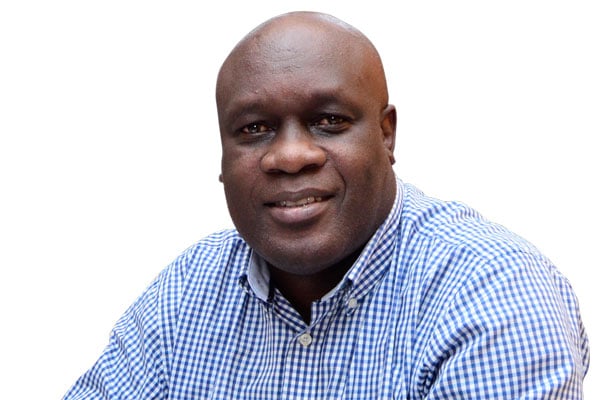What journalist are you on social media?

Author: Odoobo C. Bichachi is the Nation Media Group (NMG)-Uganda public editor. PHOTO/FILE.
What you need to know:
- For journalism, social media has been both a boon and a death knell. A boon in that it enabled journalists to reach and engage with bigger audiences beyond time and distance.
Social media is by far the largest mass media of all time, thanks to advances in information and communications technology (ICT) that has not only cut away distance and time as a barrier to communication in the world but has also reduced the world to the size of a human palm.
In the small hand-held device known as the smart phone, the world today communicates instantly on social media with billions receiving and sharing information. Just to comprehend its expanse, here are the numbers on the different social media platforms.
Facebook – 3 billion, X (Twitter) – 450 million, YouTube – 933 million, Tik-Tok – 1.7 billion, Instagram – 1.4 billion, WhatsApp – 2 billion, WeChat – 1.3 billion, Telegram – 800 million. Many millions are on the smaller platforms. Thus a single post or tweet can potentially reach a billion people in the twinkle of an eye. Uganda has at least 8 million smartphone users!
For journalism, social media has been both a boon and a death knell. A boon in that it enabled journalists to reach and engage with bigger audiences beyond time and distance. How? A Daily Monitor story on its website can, for instance, be read minutes after it is uploaded by someone in Canada or New Zealand where a printed copy would not reach in a week, if at all.
Naturally, social media has drawn in all of us – journalists (professional and citizen), ordinary citizens and civic leaders, young and old, etc. It is literally the food we eat and the air we breathe every day from dawn to dusk. It is the new media!
The downside is that in a democratised information space where professional journalists and platforms stand alongside citizen journalists and all, the gate-keeping role and monopoly to break news, to frame news, and to guide public debate has largely been lost. Instead, we have a free-for-all information society that also birthed fake news, misinformation, disinformation, mal-information etc. It has also wiped away long-held media ethics that protected society and people’s privacy and reputation.
Where old-school journalists strived to act with caution, double-check information, infuse empathy in handling stories, and strived to minimise harm, many citizen journalists go out guns blazing; sharing (or originating) information often without care of its truthfulness, balance, fairness, privacy and impact on individuals, communities and organisations. In Uganda-speak, it is called online “violence” or “vawulence”!
Not surprisingly, swimming with crocodiles has turned many of us [journalists] into crocodiles too! Thus beyond opportunity to engage with their audiences and build their brand, many are carried away by the “fame” social media brings through “likes” and “following” post about anything just like the next chap with a smartphone and no basic training!
Professional journalists are expected to tweet or post conscientiously (even on personal social media accounts), and to be guided by journalism code of ethics, good journalism practices, and social media policies. Uphold truth, rely on facts, be fair, balanced, give both sides of the coin, and do not engage in libel or slander of individuals or organisations.
Remember, as Brent Barnhart in his article, “Social media and journalism: How to effectively reach the public” writes; “Name-calling, controversy and bickering on social media can definitely result in buzz and clicks.
However, riling people up or posting ‘hot takes’ to stir the pot usually does more harm than good. Although some journalists might see drama as an opportunity to get their names out there, doing so could do long-term damage to your reputation.”
*******
READERS HAVE THEIR SAY
Segawa F (Kampala): I am a puzzle fan. Is it a policy of Daily Monitor newspaper to give us the same Puzzles, Words and Sudoku every year after year? We are bored and you need to revise it!
Joseph van Eijndhoven (in Lira): As to why you receive fewer letters. You don’t give feedback. When sending an email it disappears into a blank hole never to be heard of again. Also your mailbox used (?) to be overflowing resulting in bouncing emails. Also the maximum words for letters/opinion cannot easily be found. If I write to a Dutch paper, I get an automatic reply with standards for letters and opinions. So I can correct it if necessary. Then an email if and when they decide to publish or an email after five days that they couldn’t publish. Such feedback encourages reader-feedback
Send your feedback/complaints to [email protected] or call/text on +256 776 500725.



